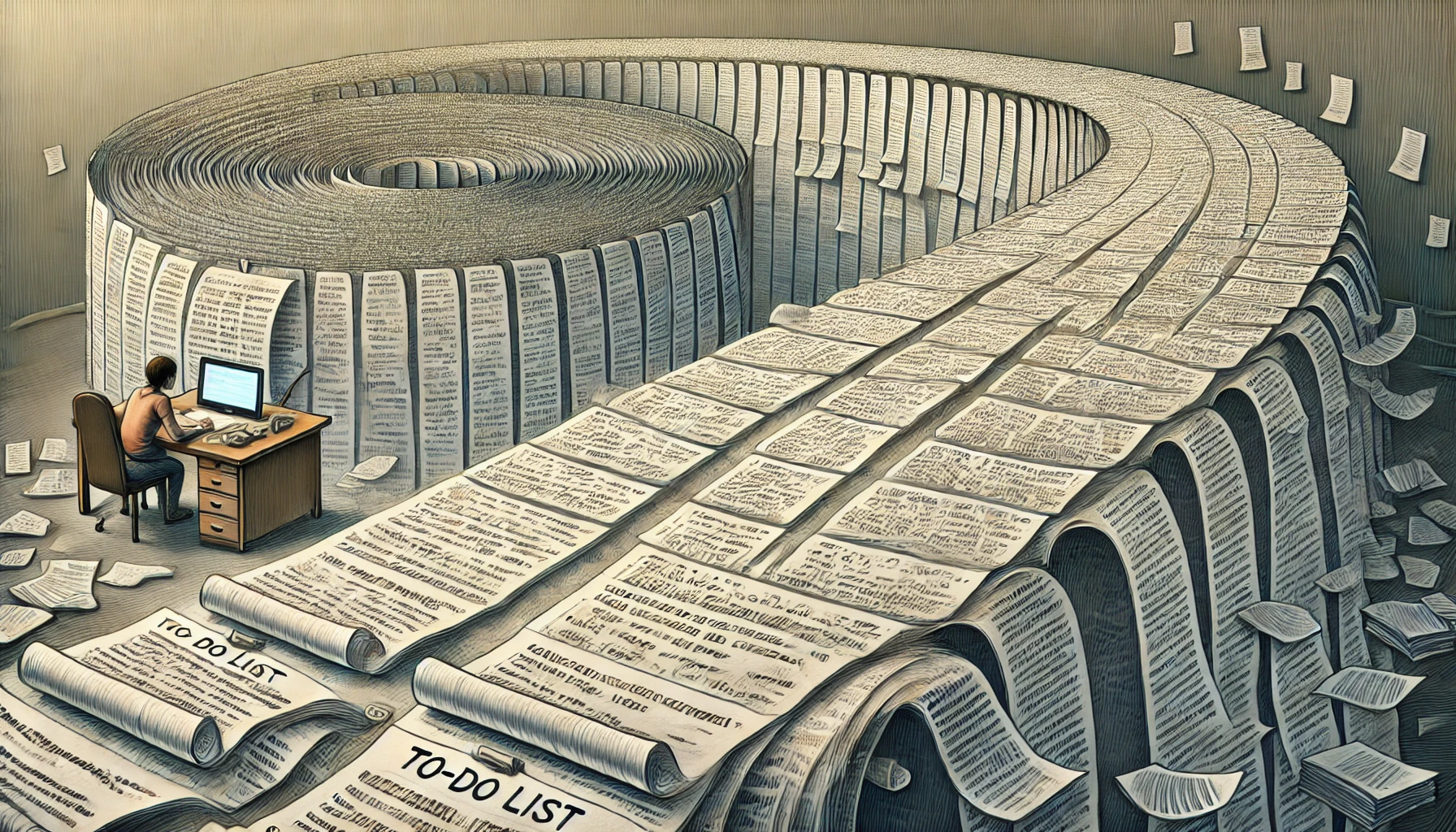11 Ideas To Shift How You Think About Productivity
These are the concepts I share over and over again with my clients to help them reframe how they think about what it means to be productive.

Since I started running my productivity consulting practice full-time, I have built up a toolkit of concepts related to productivity and time management. These concepts are meant to challenge you to think differently about how you spend your time, energy, and attention amongst the cacophony of messaging about hustle and overwork. They are the puzzle pieces that make up an intentional life, though they come together to reveal different pictures for each person who collects them. Each concept takes time to turn over and over until they click into place, but when they do click, they reveal ways of living that will help make things feel less frantic and more joyful.
The challenge is always that they require time, effort, repetition, and adaptation as each person decides which pieces fit in their particular puzzle for the picture they are trying to create.
With this in mind, it is valuable to revisit some of these common concepts and see if today is the day they click for you.
Here are 11 ideas to shift how you think about productivity, how you spend your time, energy, and attention, and your pursuit of the intentional life.
1. Too little time is not the problem. The problem is too many priorities.
We are all guilty of some variation of the refrain, “There isn’t enough time in the day.” But how much time you have isn’t the problem. We all have the same amount of time each day, and time will pass regardless of what you do.
When you feel like you don’t have enough time, it’s usually because you are trying to do too many things. From author Oliver Burkman’s book Four Thousand Weeks,
“The core challenge of managing our limited time isn’t about how to get everything done—that’s never going to happen—but how to decide most wisely what not to do, and how to feel at peace about not doing it.”
Again, you can’t do all the things. It’s impossible. So your mission isn’t to “find more time” since there is none to be found. True time management is about deciding what not to do, and narrowing your priorities so you can focus on the things that genuinely matter.
2. I didn’t have time = I didn’t prioritize
Another way to think about the link between time and priorities is this:
When you say you didn’t have time or were too busy to do something, what you’re really saying is it’s not a priority. Or, at the very least, the thing you did do was a higher priority.
This is a valuable thought exercise because many of the things we put off our lists until a nebulous “later” are things that we say are important to us… but we don’t give them our time or attention.
The idea is for you to think about the things you “don’t have time for” and instead say, “it’s not a priority.” This shifts responsibility to an intentional choice instead of a passive choice. For example, saying “I don’t have time to go to the doctor,” hits a bit differently than “going to the doctor is not a priority.”
3. Prioritization will always trump efficiency
A quote I bust out often in my speaking gigs is from Peter Drucker, who said,
“There is nothing so useless as doing efficiently that which should not be done at all.”
No hack, software, or framework that will make a difference if you are doing the wrong things. You need to get clarity on what the right things are and what the wrong things are. Some reading that might help:
- The Ultimate Guide to Prioritization,
- Part 1: How to Decide What NOT To Do (When Everything Feels Important)The Ultimate Guide to Prioritization,
- Part 2: How To Decide What To Do... And Do It!
4. Some balls are plastic, some are glass
What are some other ways to get that clarity? When you think about the plethora of priorities you are juggling, a great metaphor to consider is plastic balls versus glass balls. From author Nora Roberts,
“The key to juggling is to know that some of the balls you have in the air are made of plastic and some are made of glass. And if you drop a plastic ball, it bounces, no harm done. If you drop a glass ball, it shatters, so you have to know which balls are glass and which are plastic and prioritize catching the glass ones.”
A glass ball has consequences for your health, your well-being, your relationships, or your reputation.
Something else to consider: You are a glass ball. If you don’t take care of your well-being in all its facets, you will shatter, and everything else will drop, too.
5. There are things that matter and things that don’t
The glass balls are the ones that matter. They are the ones where something important is at stake.
So many of the things that cause stress and monopolize your time and attention are things that don’t deserve your energy. If you take a step back and really consider, they are often innocuous or unimportant.
While it’s normal and reasonable to feel stressed, frustrated, overwhelmed, and have an entire range of tough emotions, sometimes it helps to articulate the things that truly matter to help take some space and perspective. Will this matter tomorrow? Next week? Next year?
6. No is the most important word in your vocabulary
There is an opportunity cost every time you say yes to something. That yes means you have said no to countless other things. Are they the right things? Those yes’s also often mean over-packed schedules, commitments you don't want, and can lead you down the path to burnout.
When you think about what’s motivating your decision to say yes (or not to say no!), is it because you want to do it, it’s required, or is there a fear motivating you?

7. You have way less time each day than you think
How often do you plan to get a whole list of things done in your day… and feel bad at the end because you didn’t get to all of it?
Usually, it wasn’t possible in the first place!
Part of my initial exercises with my clients is having them map out a regular week with all their everyday activities and routines. When they’ve done this, their first reaction is the shocked realization of how little time is available each day. Once you consider hygiene, meal prep and eating, kids' activities, driving, etc., you are lucky if you have four or five total hours left in the day!
To avoid the feel-bads of not getting “enough” done, try to reset your expectations for what is reasonable and possible in a day, given those other factors.
8. Downtime is productive
Speaking of the feel-bads, how often do you feel guilty when you try to rest or take a break? How often do you have a hard time relaxing because there is so much to do?
There is always more to do! However, no one does great work when they are tired. No one feels creative and inspired when they are exhausted. No one is patient and able to roll with the punches when they are burnt out.
Downtime, rest, relaxation, and time to recharge is productive time. You will tackle all the things life throws at you much better if your mind and body feel good.
9. Rest doesn’t need to be earned
Even more important than rest as a requirement for productivity is rest for the sake of rest! You don’t have to earn rest or take rest for any other reason than it feels good. It’s not something you get to have when you have done everything else.
Rest can mean any number of things, like going for a walk, taking a nap, playing a video game, watching your favourite show, taking regular breaks, playing sports, knitting, playing an instrument, or reading a book. It can be whatever recharges you. The key is to remember that rest is vital to a joyful, fun, and fulfilling life.
10. Wasted time is time missed doing what you love with the people you love
Your life will not be measured by how many todos are crossed off your list or how many hours you worked. As is often referenced, no one on their deathbed looks back and wishes they worked more or got more chores done. People wish they spent more time with the people they love and on the things they enjoy.
Yes, you have to work, fold laundry, drive the kids around, get groceries and all the things that make up a normal life. Those types of things will always be there. But around those things are all the opportunities to enjoy your life.
When you think about what it means to waste time, think about what you want to be able to say when you look back. Think about what you can say now as you look back on the last few months or even years.
11. This is it, this is all we get, and it can change fast
It’s easy to say that you will make that call, visit that friend, or take that trip when you have time. It’s easy to think that if you work all the time and sacrifice now, at some nebulous time later, you will be able to enjoy your life.
But time is not guaranteed, and that nebulous later might never come. Circumstances can change very fast, and suddenly, you aren’t able to do the things you waited to do.
This is it, this is all we get. Do your best not to defer your life.
Many of these are familiar refrains but are all good reminders to pull back from the chaos of the day and reconnect with the things and people who matter most.
Did any of these ideas click for you today?
If you’re feeling overwhelmed and uncertain about where to begin to bring things back to a reasonable state, I can help!
Share
Ashley Janssen

Productivity consultant, writer, speaker, serial entrepreneur, chaos calmer, introvert, cat-lady. Lover of books, fitness, old fashioned’s, basketball, and video games.
Follow me on
Twitter
or
LinkedIn.
Hire me for
1 on 1 productivity consulting
or
speaking.
Related articles

Why Are You Productive For "Only" 5-6 Hours Each Day?

When You Do Things Matters


Comments ()